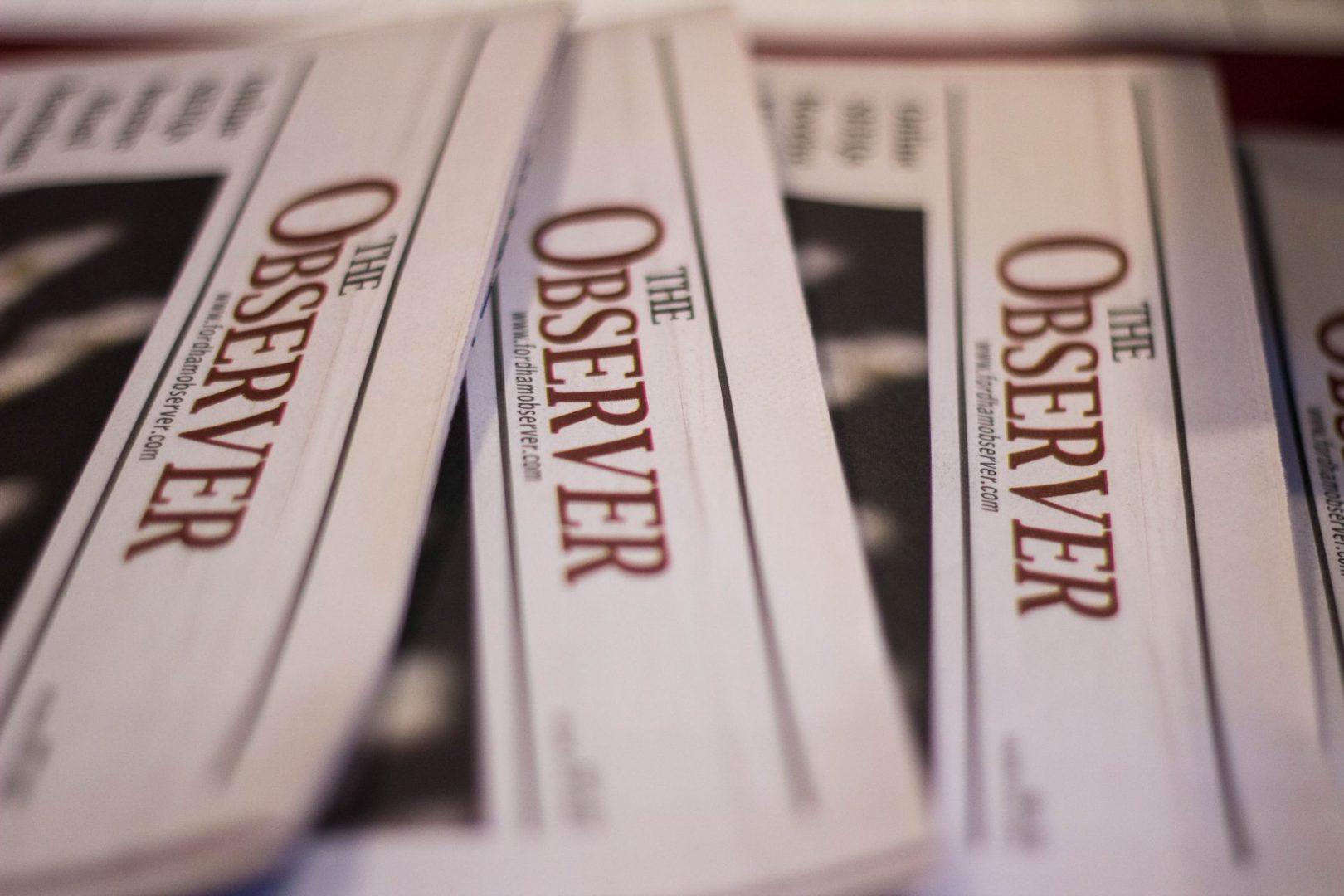Staff Editorial: Let Student Voices Count
April 10, 2019
Fordham’s student community prides itself on being politically engaged.
We are nothing if not a student body that cares. We are passionate and unafraid to organize to accomplish change. We host rallies, organize vigils and coordinate projects to solve issues on every level of government, local to international.
But that behavior stops at Fordham’s front door.
According to United Student Government (USG) statistics released to The Observer, 390 people voted in the most recent election — only 22% of the eligible undergraduate population.
At a school where students compete to show off their “I Voted” stickers during local, state and national elections, it is concerning to see such a low turnout in our own USG election.
Student democracy is suffering at Fordham Lincoln Center. In order to revitalize it, the student body and its government must each understand and respect one another’s role in student life. There needs to be a transparent, reciprocal relationship based on trust.
No such relationship exists. Students are uninformed. Combining undergraduate apathy with USG reluctance to release election data, it’s both parties’ faults.
USG’s members have a unique and powerful role, working to unite the insight of students with the oversight of administration. But very few students even know what capacities USG has, and fewer still can tell you anything that USG actively does.
The people that we elect spend their days approving and guiding clubs, organizing budgets and running popular student outreach events such as Fordham Fridays and the Christmas Tree Lighting in the Outdoor Plaza. They take care of the administrative work that most of us don’t see, which is just as important as the more public efforts, especially for those involved in clubs on campus.
Our votes directly shape a good part of our lives as students, whether we know it or not. The student body’s appreciation and respect for the institution of USG hinges on its knowledge of USG’s activities and policies.
However, students must know that their votes are counted before they can have faith that those votes count.
The voting process should allow for students to take an active and engaged interest, beyond checking a few electronic boxes, and to be assured that their votes are part of a larger initiative. All would benefit from a chance to finally track the progress of our student democracy.
The way to do so: a continued commitment on the part of USG to release its election data. Since 2016, USG has not released its election results to the student body. Only after an Observer investigation were the results delivered, with no promise to continue to do so in the future.
The USG constitution does not prevent the breakdown of votes from being released, but it does not require it, either. There must exist a clause to mandate the release of election data from this year, past years and years moving forward.
Current USG President Demetrios Stratis said USG withheld the election numbers so as to not “make a public thing out of” the results and to avoid negative reactions from students and candidates. But these elections are public — it should never be a question that the results must be as well.
USG must also do its part to incentivize engagement by being transparent with the student body. Going forward, its members should release election results of their own volition, without prompt. Barring a guarantee that subsequent election results will be made publicly available, the future of student democracy at Fordham Lincoln Center remains uncertain.
USG can’t fix Fordham in a semester, but this is a necessary step towards restoring integrity to Fordham Lincoln Center student democracy.
It’s a start.












